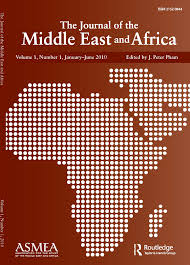Sasha Goldstein-Sabbah ~ Censorship And The Jews Of Baghdad: Reading Between The Lines In The Case Of E. Levy
No Comments yet Abstract
Abstract
This study examines how members of the Jewish community of Baghdad used foreign newspapers and journals to bring to light and gain international sympathy for issues concerning the community and its relationship with the Iraqi regime during the early years of the Iraqi state (roughly 1930–1950). As an
example of this phenomenon, the article examines a 1934 case in which authorities arrested E. Levy, author of a letter to the Manchester Guardian telling of the confiscation of foreign Jewish newspapers sent to Iraq and the opening of letters addressed to Jews by postal officials. Subsequent to his arrest, the community was not discouraged from writing in the foreign press. On the contrary, members of the Jewish community, both anonymously and by name, wrote in Jewish and non-Jewish foreign presses imploring the world to intercede on Levy’s behalf and to bring to light the situation afflicting the Jews of Baghdad. This article argues that foreign media was a successful tool for the Jewish community of Baghdad as an unofficial channel of negotiation for both communal and individual rights.
Introduction
In Iraq, the British Mandate lasted from 1920 until 1932. In the long history of the region, this short period of the Mandate is often considered “the Best of Times” for the majority of Iraq’s religious and ethnic minority groups.1 For the Jewish community of Iraq, this period is often considered the apex of social and cultural integration into general Iraqi society. The community was bolstered by Jewish socio-economic mobility due to an extensive (Jewish) community-sponsored education system and an increase in white-collar employment opportunities in both the civil service and with foreign firms. It was also a time of relative intellectual freedom with little government censorship and increased access to foreign print media.
However, the end of the Mandate in 1932 and the death of King Faisal in 1933 were met with concern in regard to the future of the relatively pluralist society which had developed and, as some would argue, foretold the beginning of the end for over two thousand years of Jewish life in Iraq. The 1930s represented a time of unease as the new state experienced political instability and unrest. Although not to be compared with the political turmoil and violence of the 1940s, for the Jewish community of Baghdad there was a perceivable difference in state policy in regard to the Jewish community after the Mandate ended. These changes included greater legislation in regard to education, unofficial quotas on the amount of Jews employed in the civil service, the official banning of Zionism (in 1935) as an ideology, greater antiJewish sentiment in the local press, and the censuring of both Jewish periodicals and post from abroad destined for Jews residing in Iraq. Although much attention has been given to the history of the Jewish community of Iraq in academic circles during the past decade, little work has specifically focused on how the Jewish community (both on a communal and on an individual level) perceived and reacted to these changes in the Iraqi state during this liminal period from the end of the Mandate of the 1920s to the chaos of the 1940s, and particularly on the question of competing loyalties between the Iraqi state and Jewish nationalism as embodied in the Zionist political movement.
Read more: https://openaccess.leidenuniv.nl/Goldstein_Sabbah_2016.pdf
You May Also Like
Comments
Leave a Reply






